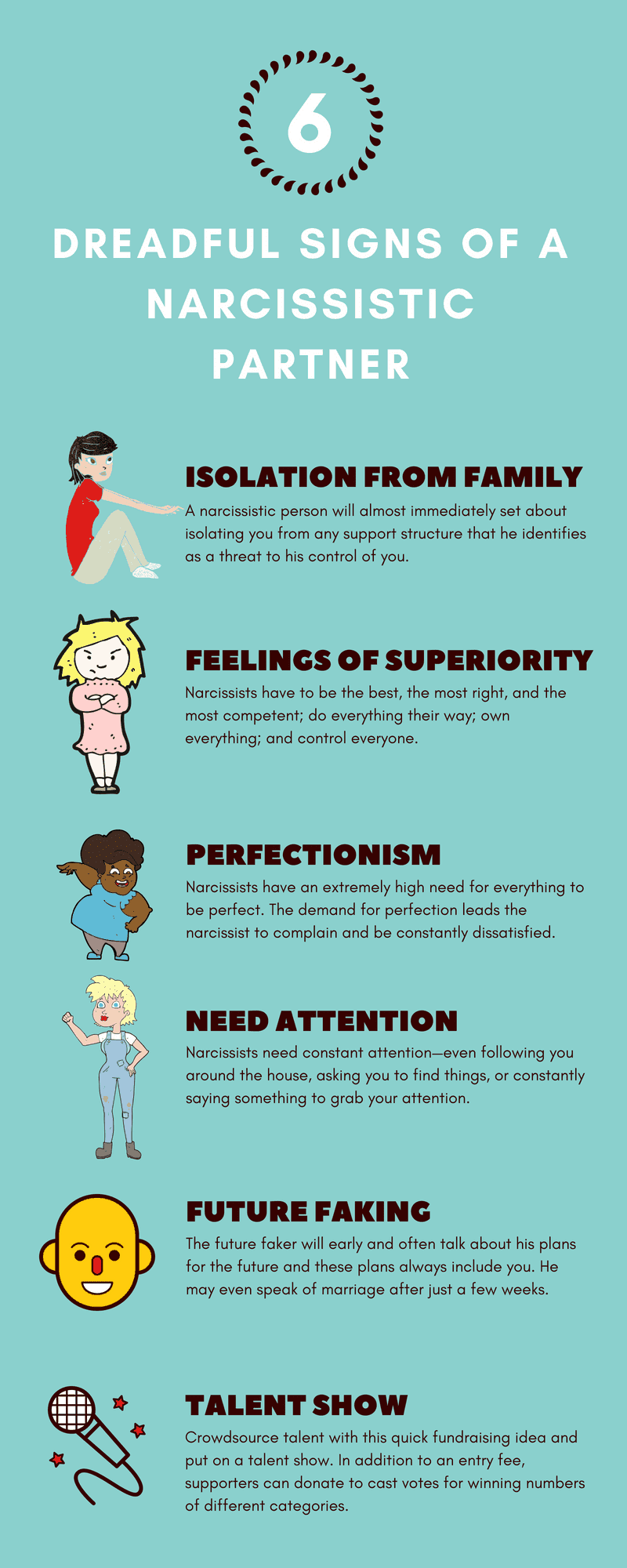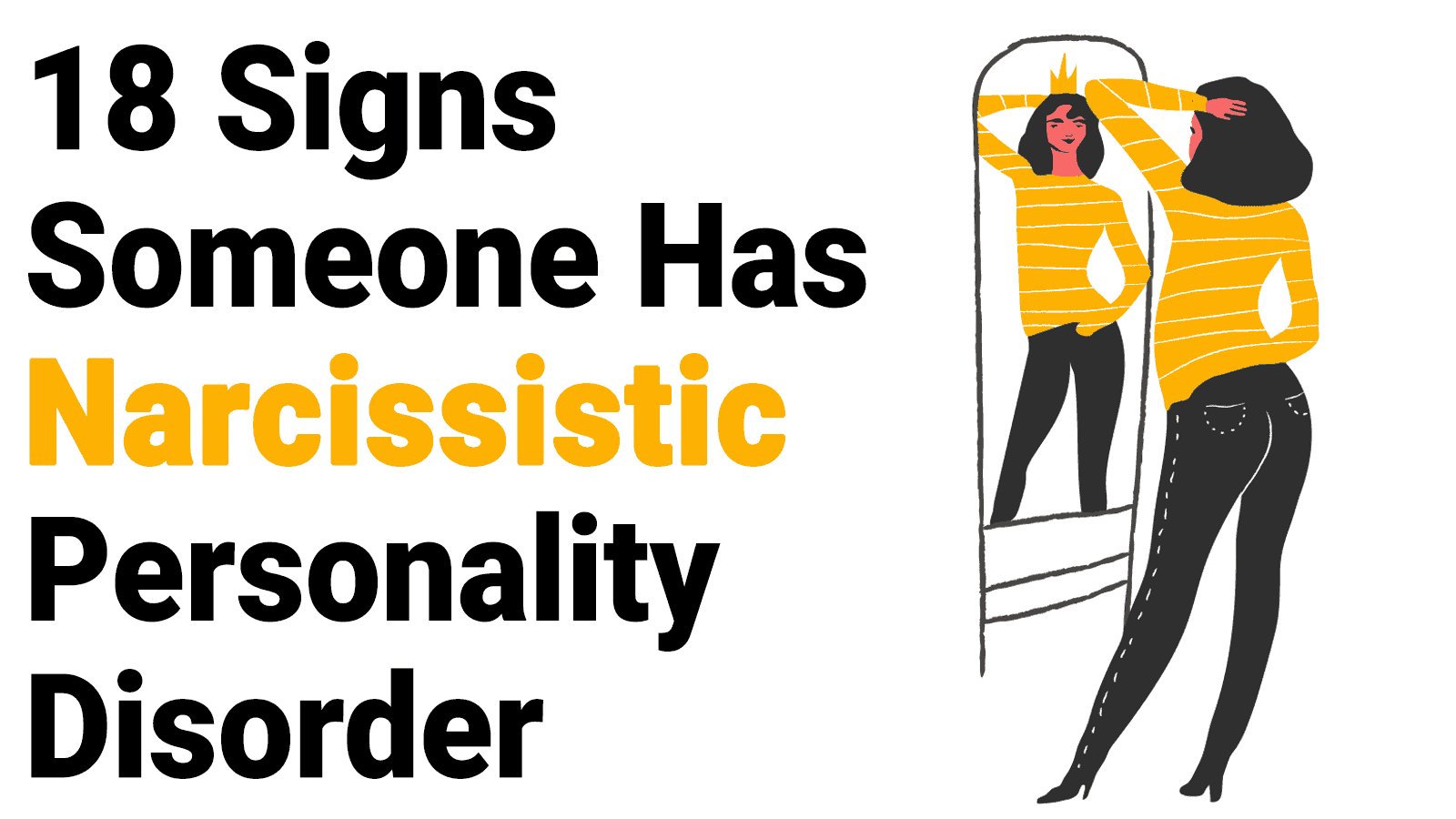A person with narcissistic personality disorder (NPD) is described as conceited, in need of consistent approval, and having no regard for anyone’s feelings but their own. In addition, they feel superior to others and expect everyone else to comply with their demands. Males are more likely to suffer from the condition than females.
People who display narcissistic attitudes try to portray themselves as having high self-esteem. Deep down, however, they aren’t as confident as they seem. This is evident as those with NPD have a hard time handling any sort of criticism. They usually respond to perceived slights with anger or even violence. They can also feel shame and humiliation when they don’t get the praise they expect.
Symptoms
A person with a narcissistic personality tends to exhibit the following thoughts and/or behaviors:
- A magnified sense of self-importance
- Constantly seeking attention and commendation
- Lack of valuing the feelings or opinions of others
- Feelings of superiority
- A believe they should only associate with high-status people, or whoever they feel shares the same league as them
- Demanding perfection from others
- The opinion that others should comply with their expectations
- Extreme sensitivity to criticism
- A strong sense of entitlement
- Putting others down to lift themselves up
- Exaggerating their accomplishments and talents
- A need for special treatment
- Envy toward others, and the belief that others are envious of them
- Exploiting others for their personal gain
- Obsessive thoughts about power, success, intelligence, physical attractiveness, and romantic relationships
- Excessive competitiveness
- A deep-rooted inferiority complex
- Expressions of ego
People diagnosed with this disorder also lack emotional stability. They often manifest a short-temper, and likely suffer from depression. Additionally, they expect others to match their level of perfection. They have such high standards that it’s difficult for them to maintain relationships. This can also affect work environments. A narcissistic employee often sets unrealistic boundaries for themselves and their co-workers.
Other signs of NPD include substance abuse, constant mood swings, and social isolation.
Causes
Many believe the disorder often develops from childhood experiences. In some cases, the adolescent was exposed to narcissistic behaviors by a parent. Children raised by parents whom exhibit narcissistic personality traits are likely to suffer from:
- Neglect
- Low self-esteem
- Excessive self-consciousness
- Depression, angst, and anxiety
- Inferiority complex
- Verbal and physical abuse
- Timidity
- Inability to accept love
On the other hand, parents can also encourage narcissistic behavior by overpraising their child.
Diagnosis
In order to give a diagnosis, the mental health professional must verify if the individual meets five or more of the criteria in the Diagnostic and Statistical Manual of Mental Disorders, 5th Edition (DSM-5). The professional will ask a series of questions on the individual’s behavior and thought patterns. The professional will also conduct a physical exam to detect if any physical issues are causing the concerning symptoms.
Final Thoughts
There is no official medication for treating narcissistic personality disorder. On top of that, many patients are reluctant to admit they suffer from the condition. If they don’t get the help they need, their narcissistic behaviors will continue to affect them and their loved ones.
Psychotherapy is the primary method of treatment for people with NPD. The process is slow; however, patience is a virtue. Long-term psychotherapy will give patients an opportunity to reevaluate their mindsets and behaviors. In addition, it can help them learn how to deal with their problems more effectively. If you are the loved one of a person with the disorder, the best thing you can do is offer support. You can encourage them to seek treatment by explaining the benefits of seeing a therapist. Reprimanding NPD sufferers about their problems can provoke more opposition to receiving help.
By receiving professional help, NPD patients take steps towards happy, fulfilling lives. The goal is for them to become better people overall, capable of building healthy relationships with others. Building positive self-esteem is key to their ability to build a bright future. However, they must also learn that practicing humility brings benefits, especially in maintaining positive relationships.


















